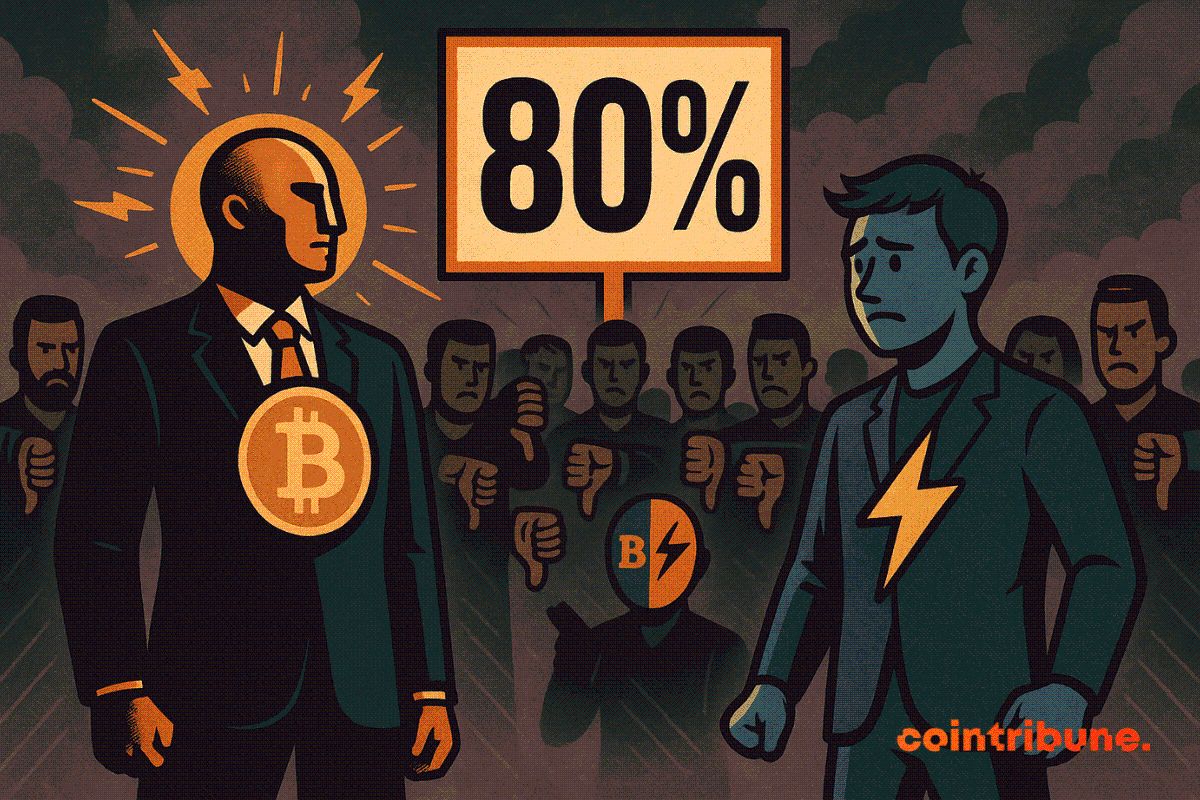Crypto's Challenge of Innovation: Is It Possible to Balance Privacy with Regulatory Requirements?
- a16z urges U.S. Treasury to exempt decentralized stablecoins from GENIUS Act, arguing current rules stifle innovation and misalign with real illicit finance risks. - The firm promotes decentralized identity and zero-knowledge proofs as privacy-preserving compliance tools, aligning with crypto developers and privacy advocates. - Senate's bipartisan crypto bill mirrors a16z's decentralization focus, proposing CFTC-led oversight and self-custody provisions to reshape regulatory frameworks. - Critics warn ex
The GENIUS Act, a legislative proposal from the U.S. Treasury designed to update stablecoin oversight, has sparked significant discussion around privacy and innovation in the digital finance sector. Venture capital powerhouse Andreessen Horowitz (a16z) has taken a prominent stance, urging that decentralized stablecoins be exempt from the Act. The firm argues that the current regulatory approach could hinder technological progress without effectively tackling genuine illicit finance threats. In a letter dated November 4 to Treasury Secretary Scott Bessent, a16z requested that regulators make it clear the Act does not apply to decentralized stablecoins—those managed by autonomous smart contracts rather than a central authority,
A16z’s advocacy is part of a larger movement calling for regulations that prioritize user privacy. Michele Korver, who leads regulatory affairs at a16z, pointed to decentralized digital identity as a way to improve compliance while maintaining privacy. “Decentralized identity solutions give people control over their personal data, lower cybersecurity threats, and help avoid excessive surveillance,” Korver stated, supporting the use of zero-knowledge proofs for secure transaction verification,

Meanwhile, legislative initiatives in Congress highlight the evolving nature of crypto regulation. On November 10, the Senate Agriculture Committee introduced a bipartisan bill on crypto market structure, reflecting a16z’s focus on decentralization,
On the other hand, some critics warn that exempting decentralized stablecoins could make anti-money laundering (AML) enforcement more difficult. Treasury analysis indicates that less than 1% of blockchain transactions are illicit, but regulators remain cautious about the potential for untraceable assets to facilitate crime,
As the Treasury moves toward finalizing the GENIUS Act’s rules, the discussion around decentralized stablecoins highlights a broader policy challenge: encouraging innovation while maintaining financial security. With proposals from a16z and the Senate pushing for a more sophisticated approach, the U.S. could establish a regulatory path that balances these competing goals—though the final direction remains uncertain as lawmakers and industry stakeholders continue to debate.
Disclaimer: The content of this article solely reflects the author's opinion and does not represent the platform in any capacity. This article is not intended to serve as a reference for making investment decisions.
You may also like
AI-Blockchain Leaders Falter While Presale Pioneers Transform the Investment Scene
- AI-blockchain convergence drives high-return investments via AI analytics, tokenized assets, and scalable infrastructure, attracting retail/institutional capital. - C3.ai faces 50%+ stock decline and $116M losses, exploring strategic options after founder's departure, with potential buyers including defense/enterprise giants. - SoundHound AI reports 68% YoY revenue growth to $42M, leveraging voice-first tech and enterprise automation to narrow losses and target 2026 breakeven. - Presale projects like IPO

U.S.-India Trade Agreement Strikes a Balance Between Strategic Interests and Energy Relations
- U.S. and India near trade deal to cut tariffs (15-16%) and reduce India's Russian oil imports, easing tensions. - Agreement aims to boost bilateral trade to $500B by 2030 while addressing U.S. concerns over India's Russian energy ties. - India seeks WTO-compliant steel/aluminum export terms, balancing U.S. strategic goals with its energy security priorities. - Deal could inject $250-350B liquidity globally, weakening the dollar and boosting crypto markets like Bitcoin .

Is the Lightning Network Losing Steam? The Numbers Raise Questions

Luxren Capital Review 2025: Is This Broker Worth Your Trust, Time, and Money?